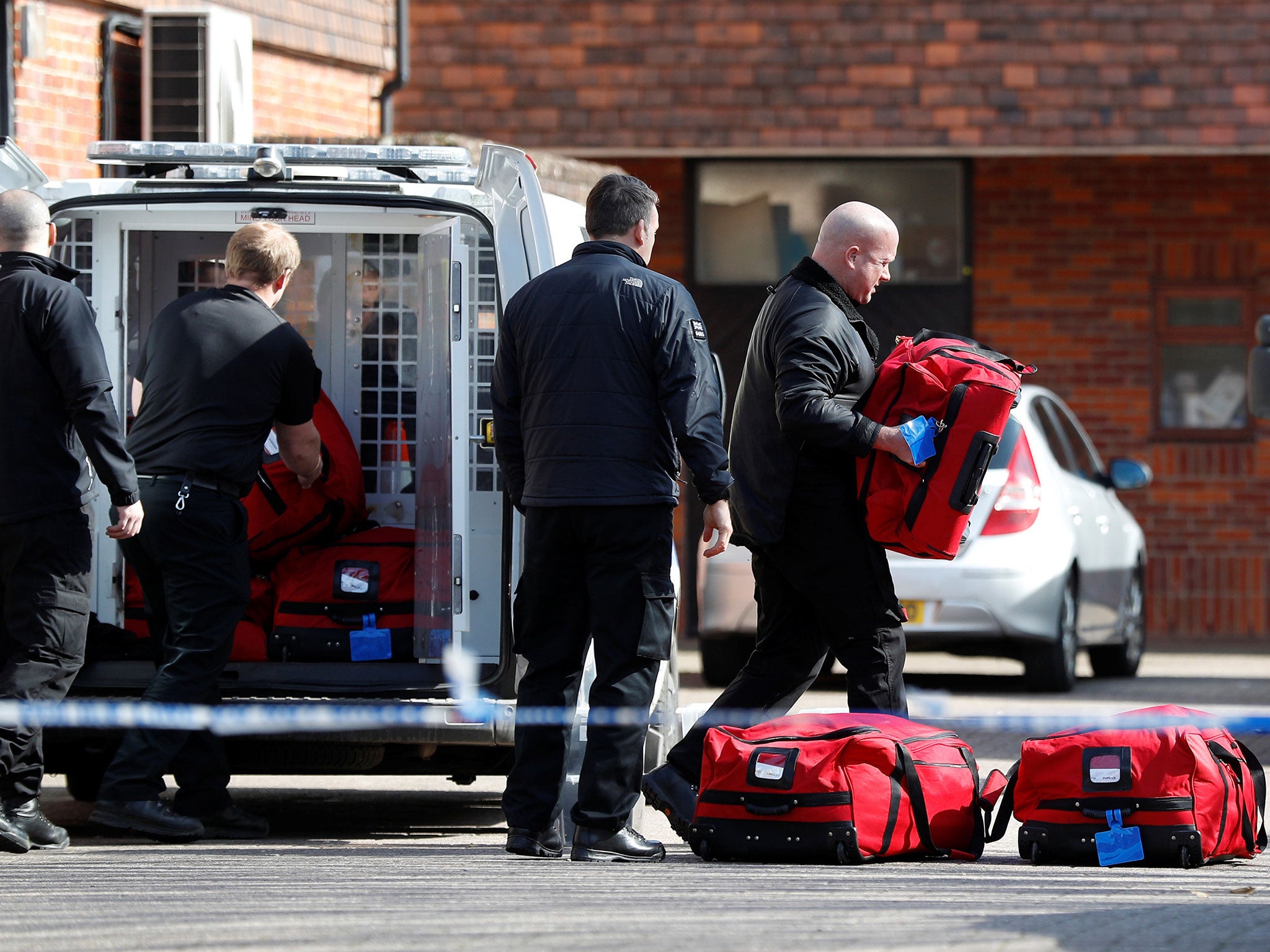Sergei and Yulia Skripal could have suffered brain damage after nerve agent exposure, says judge
International inspectors given permission to test new blood samples to verify substance used

Your support helps us to tell the story
From reproductive rights to climate change to Big Tech, The Independent is on the ground when the story is developing. Whether it's investigating the financials of Elon Musk's pro-Trump PAC or producing our latest documentary, 'The A Word', which shines a light on the American women fighting for reproductive rights, we know how important it is to parse out the facts from the messaging.
At such a critical moment in US history, we need reporters on the ground. Your donation allows us to keep sending journalists to speak to both sides of the story.
The Independent is trusted by Americans across the entire political spectrum. And unlike many other quality news outlets, we choose not to lock Americans out of our reporting and analysis with paywalls. We believe quality journalism should be available to everyone, paid for by those who can afford it.
Your support makes all the difference.Sergei and Yulia Skripal may have suffered life-long brain damage as a result of the nerve agent attack in Salisbury, a court has heard.
Mr Justice Williams told the Court of Protection that the father and daughter remain in intensive care under heavy sedation.
“The precise effect of their exposure on their long-term health remains unclear but medical tests indicate that their mental capacity might be compromised to an unknown and so far unascertained degree,” the judge said.
“At present both Mr and Ms Skripal are critical but stable; it is not inconceivable that their condition could rapidly deteriorate.”
A consultant treating the victims at Salisbury District Hospital said that Mr Skripal was unable to communicate in any way, but said his daughter was unable to communicate in any “meaningful way”.
The doctor said it was not yet possible to tell whether the pair can recover but that they were being treated “on the basis that they would wish to be kept alive and to achieve optimal recovery”.
He ruled that doctors could pass fresh blood samples from the victims to the Organisation for the Prohibition of Chemical Weapons (OPCW) alongside their medical records to aid an international investigation.
Mr Justice Williams made the ruling under the Mental Capacity Act 2005 at the Government’s request because the Skripals are unable to give consent.

The judge said taking new samples was in their “best interest” and it was not possible to say whether their current incapacity was temporary or permanent.
He concluded that the OPCW’s investigation may provide information on how to treat Mr Skripal and his daughter, and what happened to them.
“That might simply confirm the current conclusions, it might elaborate or clarify them, it might reach a different conclusion,” Mr Justice Williams said.
“Although the Secretary of State [Amber Rudd] does not believe the latter prospect to be likely given her confidence in Porton Down’s findings, I do not think the possibility can be ignored.”
He announced his decision on Thursday after analysing the case at a private hearing earlier this week, during which evidence was heard from chemical weapons experts, arms control and the Home Office.
The samples will be used to identify the nerve agent used to poison the pair and for DNA analysis confirming the origin of blood originally tested by the British military.
Experts at the Defence, Science and Technology Laboratory at Porton Down identified the nerve agent used against the Skripals as part of the Soviet-developed “novichok” group.
The Prime Minister said Russia had provided “no credible explanation” on how the substance came to be used on the streets of Wiltshire and accused Vladimir Putin’s government of culpability.
OPCW investigators have carried out tests in areas visited by Mr Skripal and his daughter in Salisbury and the results are expected to take a minimum of two weeks.
Police have not confirmed how the nerve agent was administered but confirmed a total of 38 people were treated for varying symptoms resulting from exposure.

Only the Skripals and Detective Sergeant Nick Bailey were kept in hospital, while an unnamed person is being treated as an outpatient.
DS Nick Bailey was discharged from treatment on Thursday, officials announced.
Wiltshire Police Chief Constable Kier Pritchard hailed the “absolutely fantastic news” and read statements from DS Bailey and his wife, Sarah.
The officer said the level of global support had been “unbelievable”, adding: “I’ve really appreciated every single message. One of the things that has lifted me is the public support police have received during this incident.”
DS Bailey gave his “heartfelt thanks” to medics and said he has been focusing on getting better.
“I want people to focus on the investigation – not the police officer who was unfortunate enough to be caught up in it,” he added. “I understand why there is attention on me, but all I have done is represent every police officer who goes out there every day and puts their life at risk.
“As for what happens now – we are just taking each day as it comes… normal life for me will probably never be the same.”
DS Bailey’s wife said life had been “turned upside down” for the family.
“Nick doesn’t like the term hero, but he has always been a hero to me and our children,” she added.
Ms Skripal had been visiting her father on a holiday from Russia when they fell ill after going for lunch in Salisbury on 4 March, with passersby trying to help after finding the pair slumped on a park bench.
Witnesses described them twitching, vomiting and stopping breathing – all symptoms consistent with nerve agent exposure.
The deadly chemicals attack the nervous system and can kill victims by paralysing the respiratory system, causing oxygen deprivation and eventual suffocation.
One of the scientists who developed novichok before defecting to the US said there was “no cure” for the weapons, and any antidote must be administered extremely quickly to take effect.
Mr Skripal moved to the cathedral city after being handed over in a Cold War-style spy swap in 2010.
He had been jailed for treason in Russia for allegedly passing secrets to MI6 while a colonel in the GRU military intelligence agency.
Mr Skripal’s wife died in 2012, his son passed away last year and he is also believed to have lost his brother in recent years.
The Court of Protection heard that he has some relatives in Russia but the Home Office has not attempted to contact them.
The Russian government has promised to cooperate with the OPCW but dismissed its conclusions that ally Bashar al-Assad killed civilians with sarin gas in Syria last year.
It denies any wrongdoing and claims it has destroyed all chemical weapons stockpiles and complied with the Chemical Weapons Convention.
Alexander Yakovenko, the Russian ambassador to the UK, heightened tensions by accusing Britain of storing deadly novichok itself in an extraordinary press conference, while the attack was discussed in EU talks.
The Metropolitan Police has said the criminal investigation is likely to take “many months” and continues to appeal for anyone with information to come forward.
Join our commenting forum
Join thought-provoking conversations, follow other Independent readers and see their replies
Comments